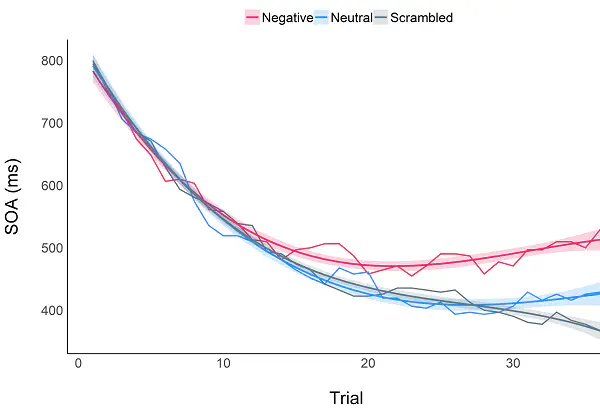
Abstract
Emotional stimuli have been shown to automatically hijack attention, hindering the detection of forthcoming targets. Mindfulness is defined as a present moment non-judgemental attentional stance that can be cultivated by meditation practices, but that may present interindividual variability in the general population. The mechanisms underlying modification in emotional reactivity linked to mindfulness are still a matter of debate. In particular, it is not clear whether mindfulness is associated with a diminished emotional response, or with faster recovery. We presented participants with target pictures embedded in a rapid visual presentation stream. The targets could be preceded by negative, neutral or scrambled critical distractors. We showed that dispositional mindfulness, in particular the Non-reacting facet, was related to faster disengagement of attention from emotional stimuli. These results could have implications for mood disorders characterised by an exaggerated attentional bias toward emotional stimuli, such as anxiety and post-traumatic stress disorders.